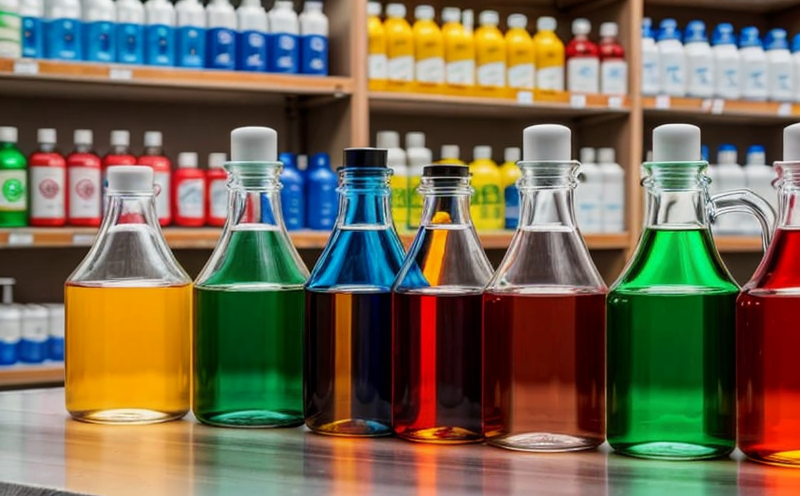ISO 11019 Detection of heavy metals in dyed textiles
The ISO 11019 standard is a comprehensive framework designed to ensure that textiles contain acceptable levels of heavy metals, which are known for their potential adverse effects on human health. This service focuses specifically on detecting and quantifying heavy metal content in dyed textiles using the ISO 11019 protocol.
Heavy metals such as lead (Pb), cadmium (Cd), chromium (Cr), mercury (Hg), and others can migrate from textiles into the environment or be absorbed by the skin during wear. As a result, these metals are regulated in various jurisdictions to protect consumers. Compliance with ISO 11019 is essential for brands aiming to meet global standards and ensure product safety.
The testing process involves several key steps:
- Sample Preparation: Samples of dyed textiles are cut into small pieces using a scalpel or scissors, ensuring they are representative of the fabric's color and composition.
- Pretreatment: The samples undergo pretreatment to remove any surface coatings or finishes that might interfere with the detection process.
- Liquid Extraction: The samples are subjected to liquid extraction in an aqueous solution designed to mimic real-world scenarios where the textiles could come into contact with water.
- Sample Analysis: After extraction, the solutions containing heavy metals are analyzed using Atomic Absorption Spectroscopy (AAS) or Inductively Coupled Plasma Mass Spectrometry (ICP-MS). These techniques provide precise and accurate measurements of metal concentrations in the textile extracts.
The results of ISO 11019 testing are critical for several reasons. Quality managers can use these results to ensure that their products meet regulatory requirements, while compliance officers can leverage this data to maintain a clean compliance record. R&D engineers benefit from understanding potential issues with new dye formulations or fabric treatments, and procurement teams can ensure suppliers adhere to quality standards.
The ISO 11019 protocol is widely recognized and accepted by regulatory bodies around the world, including the European Union (EU), United States Environmental Protection Agency (EPA), and other national authorities. Compliance with this standard ensures that your products meet international safety and environmental protection standards.
By partnering with our laboratory, you gain access to state-of-the-art facilities and experienced technicians who can perform ISO 11019 testing efficiently and accurately. Our team uses the latest analytical instruments and adheres strictly to ISO 11019 guidelines to ensure reliable and repeatable results.
Quality and Reliability Assurance
At our laboratory, we prioritize quality and reliability in all aspects of our testing services. Our commitment to excellence is reflected in the precision and accuracy of our ISO 11019 testing for heavy metals in dyed textiles.
We employ a rigorous quality management system that ensures every step of the testing process meets international standards. This includes stringent sample preparation, meticulous pretreatment procedures, and precise liquid extraction methods. Our analysts use only the most advanced analytical techniques, such as AAS and ICP-MS, to achieve accurate results.
To further enhance reliability, we have implemented robust quality control measures throughout our testing process. These include regular calibration of instruments, standardization of sample handling procedures, and peer-review of test results. We also participate in proficiency testing programs organized by recognized organizations such as the American Society for Testing and Materials (ASTM) to validate our capabilities.
Our laboratory is accredited according to ISO/IEC 17025 standards, which ensures that we meet strict criteria for technical competence and quality assurance. This accreditation provides peace of mind knowing that you are working with a reliable partner who adheres to the highest industry standards.
International Acceptance and Recognition
The ISO 11019 standard is widely recognized and accepted by regulatory bodies in many countries, including the European Union (EU), United States Environmental Protection Agency (EPA), Canada, Japan, and others. Compliance with this standard ensures that your products meet international safety and environmental protection standards.
Regulatory requirements for heavy metal content vary among different regions, but ISO 11019 provides a harmonized approach to testing that aligns with global best practices. This consistency simplifies compliance efforts for multinational companies operating in multiple jurisdictions.
For example, the EU's Registration, Evaluation, Authorisation and Restriction of Chemicals (REACH) Regulation requires manufacturers to ensure their products do not contain hazardous substances above certain thresholds. ISO 11019 supports this by providing a reliable method for detecting heavy metals at trace levels within dyed textiles.
In addition to regulatory compliance, adherence to ISO 11019 can enhance your brand's reputation and consumer trust. By demonstrating commitment to product safety and environmental responsibility, you position yourself as an industry leader in sustainability and ethics.
Competitive Advantage and Market Impact
Compliance with ISO 11019 not only ensures regulatory compliance but also offers significant competitive advantages in the global market. In an increasingly environmentally conscious world, consumers are more likely to choose brands that prioritize product safety and environmental responsibility.
By demonstrating your commitment to meeting ISO 11019 standards, you can differentiate yourself from competitors who may not adhere to these stringent requirements. This can lead to increased customer loyalty and market share growth as customers seek out trusted sources for safe, high-quality products.
In addition to consumer demand, environmental regulations are becoming more stringent in many countries. ISO 11019 helps textile manufacturers stay ahead of these changes by providing a proactive approach to ensuring product safety and compliance. This foresight can help prevent costly recalls or legal actions that could harm your brand's reputation.
Moreover, ISO 11019 testing can also facilitate smoother supply chain management. By working with suppliers who meet this standard, you reduce the risk of non-compliant products entering your supply chain and causing disruptions. This streamlined process enhances efficiency and reduces operational costs.





